Best Solar Panels for Homes in 2024
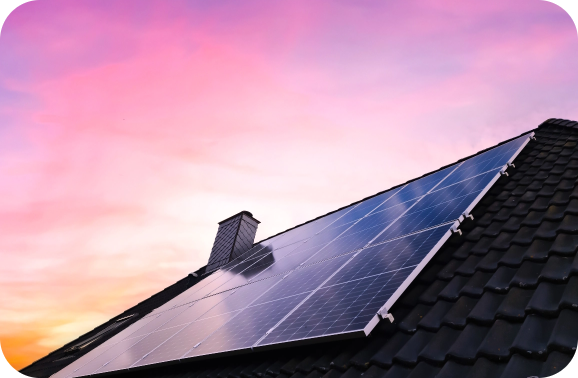
Solar panels continue to be an increasingly popular option for environmentally friendly and cost-effective home energy. However, when it comes to choosing the best solar panels for your home, several factors require careful consideration.
We’ve compiled this in-depth guide to help you compare and analyze several popular solar panel brands so you can make an informed decision about which panels will help you create the best solar system for your home.
What You Should Look for When Choosing the Best Solar Panels for Your Home
So, what are the best solar panels for your home? The answer will vary from person to person based on different factors, including current energy consumption, the size of the home, and where the house is located. However, there are a few things to consider when choosing the best solar panels for you.
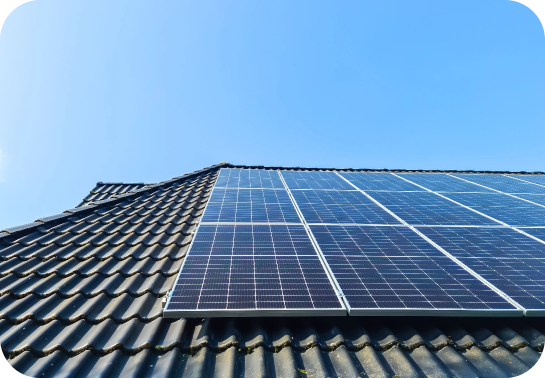
Solar Panel Costs
There are a lot of factors to consider when installing solar so you’ll want to shop around with a few different solar companies before making your final decision. You should get an in-person quote from at least three to five solar installers in your area to find the right price for your needs.
Another thing that influences the cost of solar panels is local, state, and federal rebates, incentives, and tax credits. These are programs that help offset the cost of solar installation, making it more affordable and accessible for many homeowners. You can work with your solar company to determine if you qualify for these programs.
Solar Panel Efficiency
In general, high-efficiency solar panels will work best for solar systems for homes. Efficiency can range from 16% for lower-performing panels to 22% for high-efficiency ones, though the average solar panel efficiency is 18%. Your efficiency requirements will be determined by your energy needs, the size of your home, and your overall budget.
Solar Panel Wattage
The best solar panels should generate at least as much power as they replace. This means you’ll want to look for higher-wattage solar panels that have a range between 250 and 400 watts per hour. Your solar installation team can help you find panels that fit these parameters.
Temperature Coefficient
A temperature coefficient measures how much efficiency a panel loses as temperatures increase. This means that a lower temperature coefficient rating indicates the panels will perform more efficiently in hot weather. Solar panels with lower temperature coefficients are also better suited for areas with fluctuating temperatures since they’ll have more consistent efficiency regardless of the weather.
Your Power Needs
The best solar system for your home is the one that generates enough energy to meet your home’s power needs. You should take time to assess your current energy consumption to determine how much solar energy you’ll need during the day as well as how much you’ll need to store for night use. With this information, you can work with your solar installation team to find the best solar home system that aligns with your home energy needs.
Look at Solar Panel Warranties
Most of the best solar panels have at least 25-year warranties. As you’re searching for the right panels for your home, make sure you take the time to research these warranties to ensure you’re getting the best and longest-lasting coverage available for your solar panels.
Installation Company Availability:
As you search for the best solar home system, you’ll want to find a trustworthy and professional solar installation copy to work with. Make sure the company you’re considering has the solar panels and components you’re looking for and is available to do the work you need. Take time to read reviews, get references, and get price quotes for any potential company to ensure you’re comfortable working with the installer you’re considering.
Available Roof Space
Before you make a final decision about switching to solar energy, you should evaluate your roof and check your yard. You want to make sure there’s enough space on your roof for a home solar system and that there aren’t any spaces that are excessively shaded. If there are any overgrown trees that are blocking parts of your roof, consider having them cut back before you schedule your solar installation.
Check Solar Panel Reviews
Just as you should research a solar company, you should also thoroughly research any solar panels you are considering. This means reading reviews and understanding customer experiences to ensure that you can make an informed decision on the best solar panels for your home.
Solar Installation Recommendations
Another way to find the best solar system for your home is to speak with your family and friends. If any of them have solar panels, you can ask if they recommend the panels they have and the company they worked with to see if that might be a good option for you.
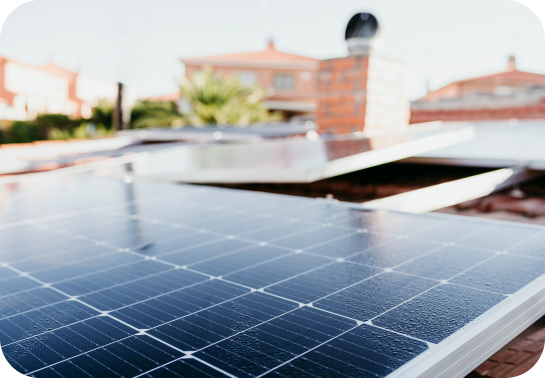
How Do Solar Panels Work?
Solar panels work by converting sunlight into usable electricity to power homes and businesses. The panels are made up of photovoltaic (PV) cells that absorb available sunlight and create a direct current (DC). This current is then passed through the system inverter, where it converts into an alternating current (AC). Most home appliances and electronics need the alternating current to operate, which is why the currents need to be changed from DC to AC.
Solar Panel Companies
Here are some top solar panel companies you can consider for your home solar system.
Qcells
Best overall choice
Pros
Disclaimer: *Wood Mackenzie U.S. PV Leaderboard for 16 consecutive quarters for the residential segment
Cons
Top Installation Companies
Companies like Axia Solar and Forme use these solar panels.
Canadian Solar
Best for colder climates with lots of snow
Pros
Cons
Top Installation Companies
Companies like SunRun, Blue Raven, and Solanta use these solar panels.
REC Solar
Best for high-temperature areas
Pros
Cons
Top Installation Companies
Companies like Blue Raven and Forme Solar use these solar panels.
SunPower
Best for high solar panel efficiency
Pros
Cons
Top Installation Companies
Numerous companies are approved to install SunPower solar panels.
Silfab
Best for solar panel warranties
Pros
Cons
Top Installation Companies
Companies like ADT Solar and Astrawatt Solar use these solar panels.
Mission
Best for U.S.-based manufacturing
Pros
Cons
Top Installation Companies
Companies like Blue Raven Solar and Vivint Solar use these solar panels.
Residential Solar Panel Models With the Highest Efficiency
There are several solar panel models that have excellent efficiency ratings, so you should consider one of these options when looking for the best home solar system.
As you are deciding which are the best solar panels for your home, you can speak with your solar installation company to see if any of these panels would be a good fit.
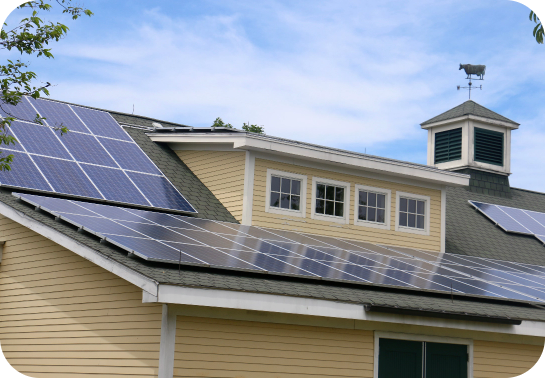
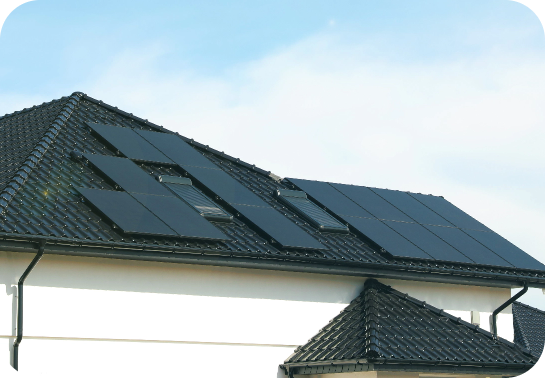
What Impacts Solar Panel Performance?
When it comes to picking the best solar panels for your home, you want to ensure that you’re choosing ones that offer top performance and efficiency . Here are a few things that could impact how well solar panels energize your home.
Panel Type and Size
As previously mentioned, there are three types of solar panels: monocrystalline, polycrystalline, and thin-film panels. Monocrystalline panels are the most efficient, with polycrystalline having mid-efficiency and thin-film being the least efficient. Additionally, the size of panels can impact performance as well, with bigger panels being more efficient than smaller ones.
System Components
Several components comprise a home solar system, including the solar panels, inverter, electrical panel, and electrical meter. All of these parts need to be carefully balanced and working correctly to ensure the system can work at maximum efficiency. If any of the components are outdated, poorly designed, or failing, it could significantly reduce the system performance.
Sunlight
Solar panels need direct sunlight for peak performance. This means that if your panels are often in the shade, they aren’t going to generate as much energy as they could. However, it’s important to note that cloudy or overcast days won’t significantly impact panel performance like shade does, meaning you’ll only experience a slight decrease in system efficiency on days without direct sunlight.
Temperature
The best solar panels are designed to work in a range of temperatures since they are always exposed to the elements. However, when the temperature gets too hot, it can slightly reduce the efficiency of the panels. Additionally, if the solar panels are constantly exposed to extremely high temperatures, there could be damage to internal components over time.
How Much Do Solar Panels Cost?
The cost of a home solar system varies based on different factors, including the size of your home, how many panels you have, where you live, and even which solar installation company you work with. Solar panel costs can range from $15,000 to $40,000, and you can use the Axia Solar Calculator to get an estimate for your property. To get the most accurate price, though, you should get a quote from professional solar installers.
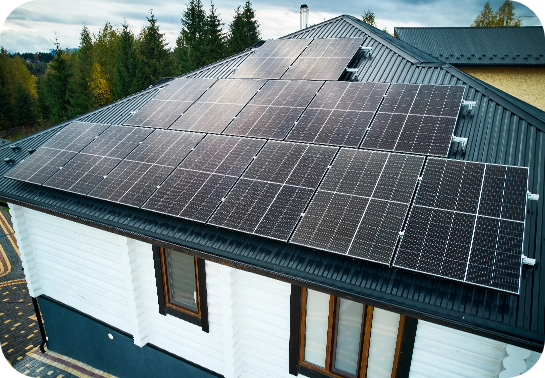
Types of Solar Panels
To determine the best solar panels for your home, you need to know about the different types of panels and how they are made. Here are the three types of solar panels.
Monocrystalline
Monocrystalline solar panels are the most common option for home solar systems but are also the most expensive. However, these panels also have the longest lifespan, around 25 years or longer, and operate at a higher efficiency than other options. So, while you may pay more for these solar panels, the benefits of longevity and efficiency are well worth the cost.
Additionally, monocrystalline panels are made from a single (mono) silicon crystal, which sets them apart from polycrystalline panels.
Polycrystalline
Unlike monocrystalline panels, polycrystalline solar panels are made up of multiple crystal fragments melted together. This process makes manufacturing these panels more cost-effective compared to other options, but they are slightly less efficient than monocrystalline panels.
Thin-Film Solar
Thin-film solar panels are the least efficient — and least expensive — option for solar energy. Instead of using cells like other panels, thin-film solar panels are made by placing a thin layer of photovoltaic material on top of a glass pane, which is why they are less efficient. The lower efficiency makes them less ideal for homes or businesses, meaning they are mostly used for smaller utility-scale projects.
Bottom Line: What is the Best Solar Panel for Your Home?
So, what are the best solar panels for your home? If you live in an area with heavy snowfall, consider Canadian Solar. For high-temperature areas, you might prefer REC Solar. Want solar panels with high-efficiency ratings? SunPower could be just what you need. Maybe you’re looking for a robust warranty for your solar panels? Silfab is an excellent option. For solar panels manufactured right here in the United States, Mission Solar is a great choice. For superior customer service and our best option overall, Qcells may just be the right choice for you.
Reach out to the team at Axia Solar to discuss your solar panel options and determine the ideal route for your home solar installation.
Frequently Asked Questions
Here are a few of the most frequently asked questions we get about solar panels.
Most solar panels available today produce between 250 and 400 watts of energy daily. Let’s say your panel gets six hours of direct sunlight a day, and the panel is producing 280 watts. That means 5 hours times 280 watts gives you 1,680 watt-hours, or 1.68-kilowatt hours (kWh), per panel in your system. If you have 20 solar panels on your home, you’re getting 33.6 kWh a day from each panel, which results in 672 kWh of energy per panel per year.